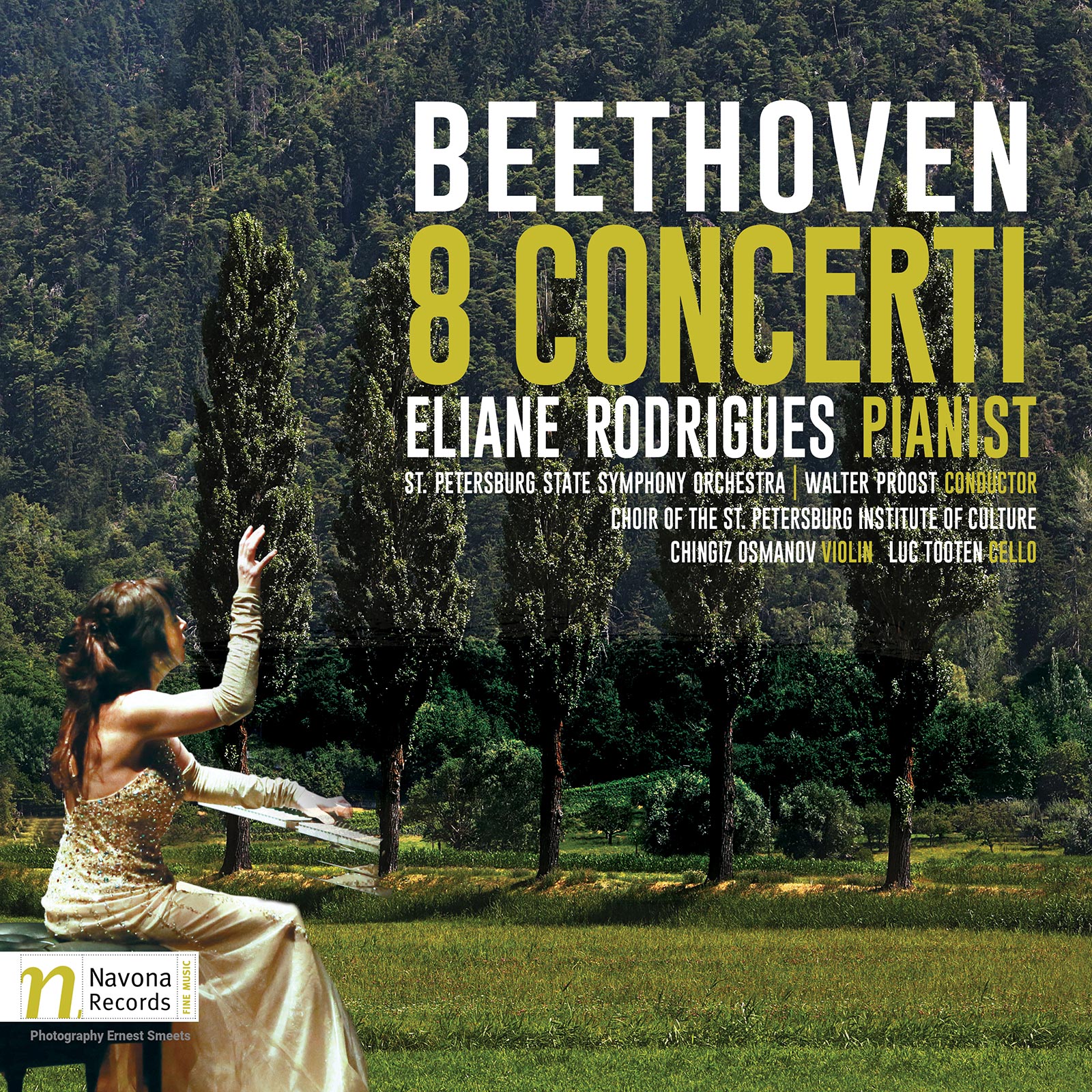
Share Album:
Beethoven
Eliane Rodrigues piano
St Petersburg State Symphony Orchestra | Walter Proost conductor
Choir of the St Petersburg Institute of Culture
Chingiz Osmanov violin Luc Tooten cello
In this stunning tour through the concerti of Beethoven’s early and middle periods, pianist Eliane Rodrigues captivates her listeners with graceful keyboard virtuosity, accompanied by the renowned St. Petersburg State Orchestra, Maestro Walter Proost at the podium.
The technicality is so precise, the performance so true to period, that one might think the composer himself was at the piano. The album includes Beethoven’s five finished piano concertos, including the popular No. 5, “Emperor,” and No. 2, for which Rodrigues prepared her own masterful cadenza. Also included is Op. 61a, a piano transcription Beethoven arranged of his treasured Violin Concerto; and Op. 56 “Triple,” with cellist Luc Tooten, and violinist Chingiz Osmanov. An incredible bonus for the listener is the inclusion of Beethoven’s Op. 80, “Choral Fantasy” for piano, orchestra, vocal soloists, and choir—in this case, the Choir of St. Petersburg Institute of Culture, prepared by Sergey Yekimov—widely thought to be a precursor to his Symphony No. 9, “the Choral”.
Rodrigues’ ingenious assimilation with the orchestra is what drives this album. The collaboration of the two is seamless and blesses the listener with a fresh experience of these eternal Beethoven works.
Eliane Rodrigues has been performing piano concertos since childhood, with her first televised concerto performance at age 6. She currently has over 60 ready-to-perform concertos in her repertoire. Rodrigues is a celebrated conductor, composer, and is currently in residence as a professor at Conservatory of Antwerp.
Listen
Artist Information

Eliane Rodrigues
Hailing from the vibrant heart of Rio de Janeiro, Eliane Rodrigues emerged early on as a musical prodigy, her innate talent blossoming in the colorful tapestry of Brazilian culture. Her exceptional capabilities were first nurtured by Helena Gallo and subsequently honed under the guidance of Arnaldo Estrella, a student of the renowned Alfred Cortot and Yves Nat.
